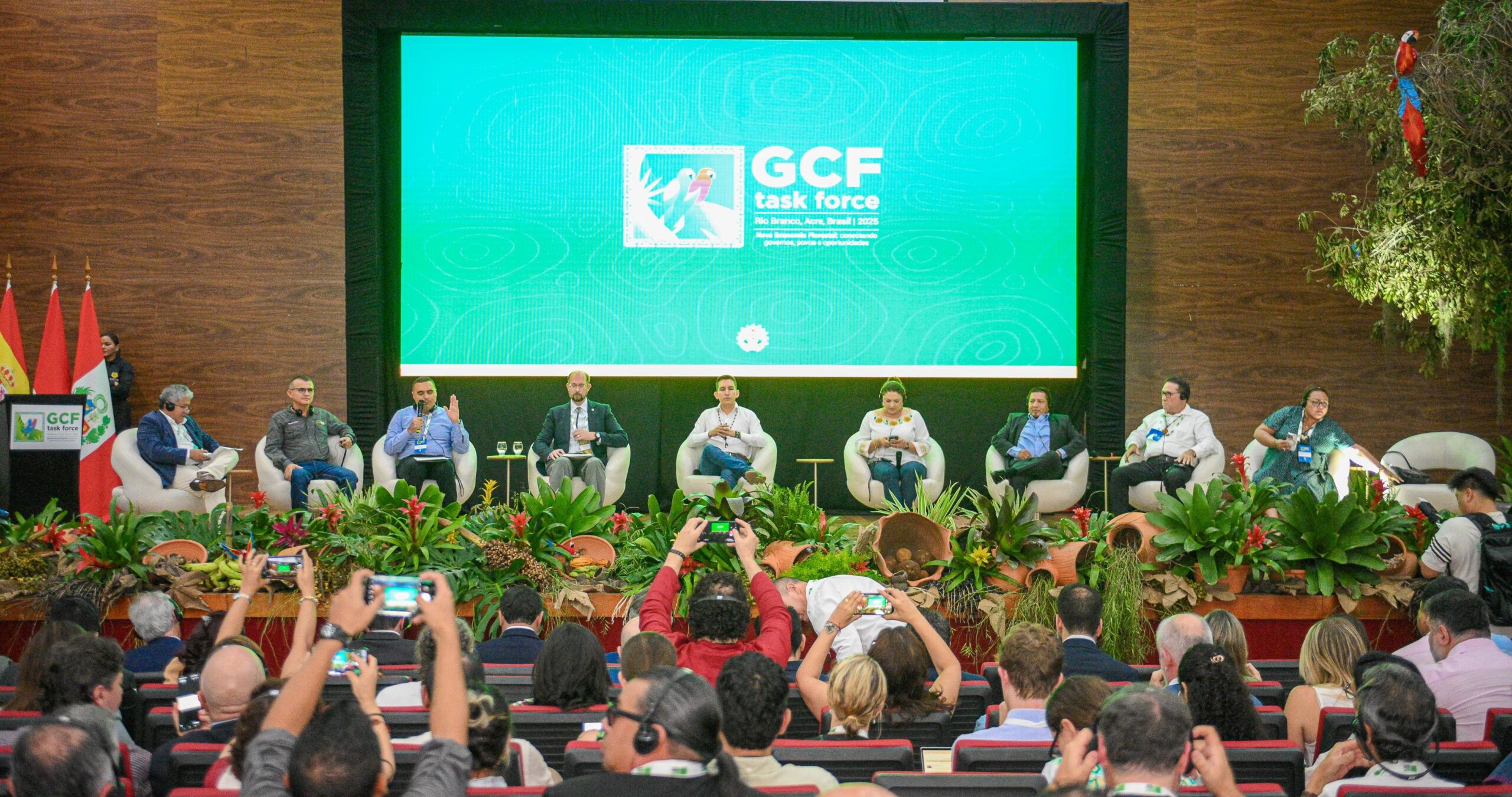Subnational coalition of states and provinces convene to co-design mechanisms to support a thriving bioeconomy, protect natural infrastructure at jurisdiction-scale, build out sustainable supply chains, and foster large-scale restoration.
Rio Branco, May 23, 2025 – The 15th Annual Meeting of the Governor’s Climate & Forests Task Force (GCFTF), the world’s largest subnational governmental network focused on forests and climate, took place in Rio Branco, Acre, Brazil, from May 19 to 23, 2025. During the meeting, the GCFTF engaged in robust technical exchanges and presented a common vision of support and engagement to Brazil’s Minister of Environment and Climate Change, Marina Silva, for increasing subnational participation and implementation leading to COP30 in Belem, Para, Brazil in November 2025.
The GCFTF also announced the addition of two new full members jurisdictions and seven new observers, in addition to a series of measures to continue the implementation of the New Forest Economy. With representatives from 11 different countries present, the GCF Task Force now has 45 subnational governments, encompassing the Brazilian and Peruvian Amazon, as well as 60% of the forests of Mexico and Indonesia and 75% of the Bolivian Amazon.
The event was attended by more than 800 people, including 20 governors and vice governors, in addition to Minister Silva, the Socioenvironmental Director of the National Bank for Economic and Social Development (BNDES), Tereza Campello, and authorities from state environmental secretariats, Indigenous and local community leaders, and international cooperation partners.
Governor’s Framing
Acre is a key forest state located in the Southwestern Amazon, which maintains at least 85% forest cover. Hosting this year’s meeting in Acre reflects the state’s historic leadership in designing innovative environmental policies, starting from the movement for sustainable production and tropical forest protection led by Chico Mendes. Reflecting on this history, Governor Gladson Cameli framed the work of the GCFTF as follows:
“If the New Forest Economy comes from the land and its elements, it is necessary for each of us to assume our leadership role and thus promote the pillars of bioeconomy, restoration of degraded areas, natural infrastructure, and productive intensification, positioning ourselves at the forefront of an innovative, prosperous, and permanent mode.”
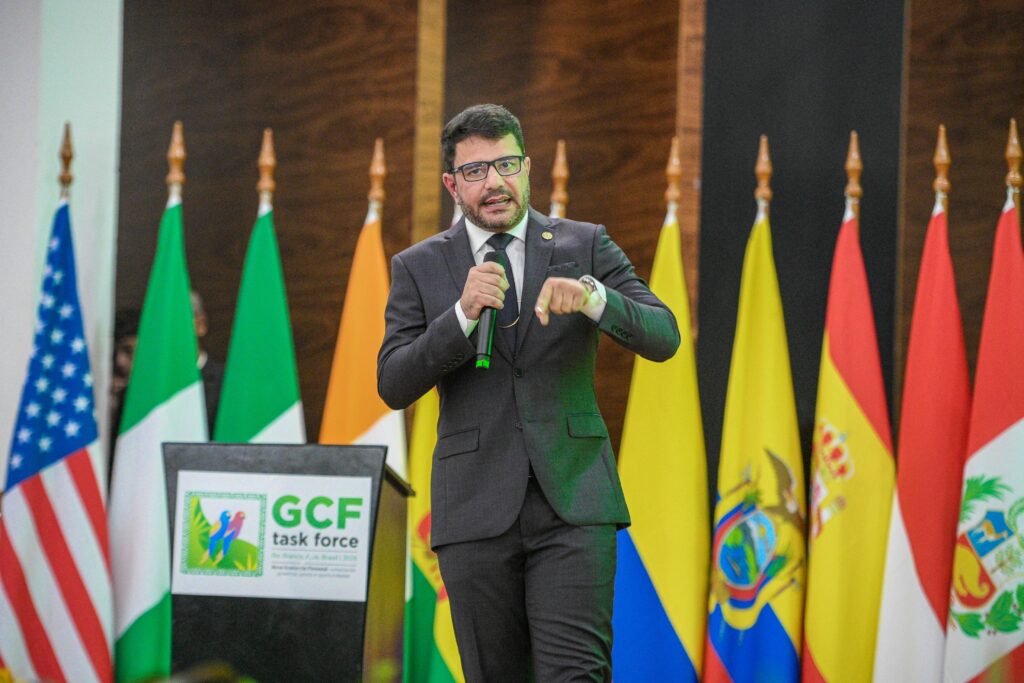
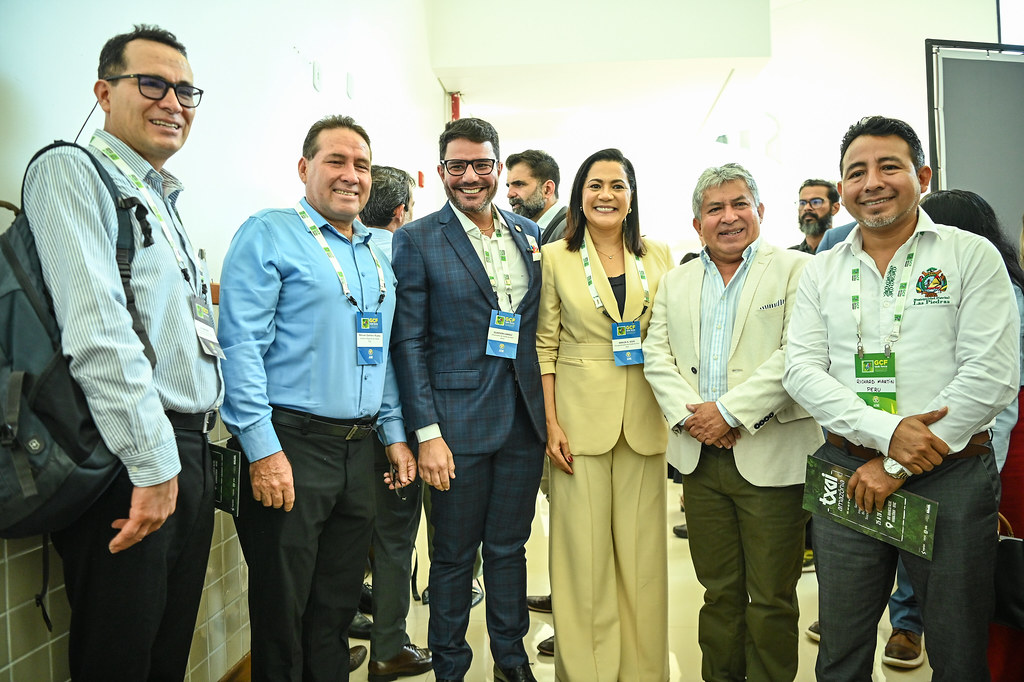
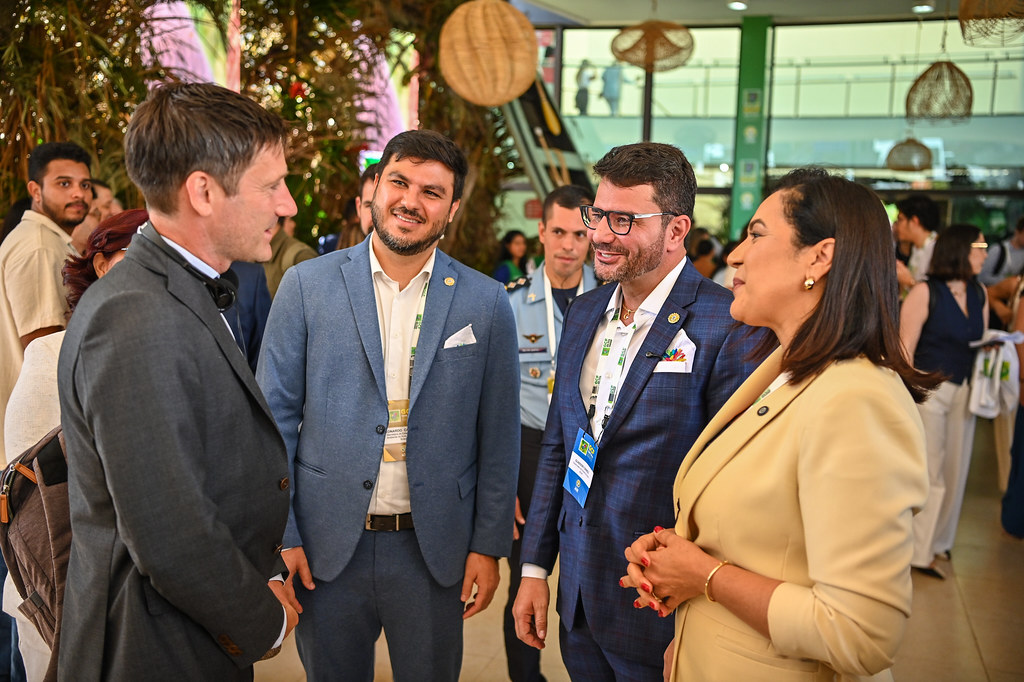
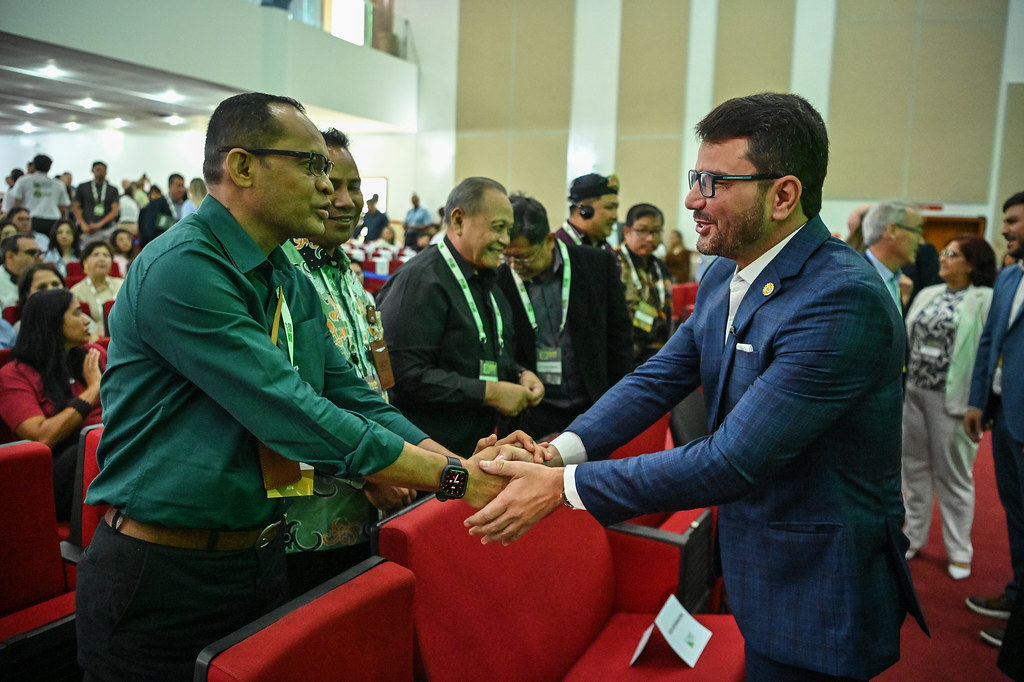
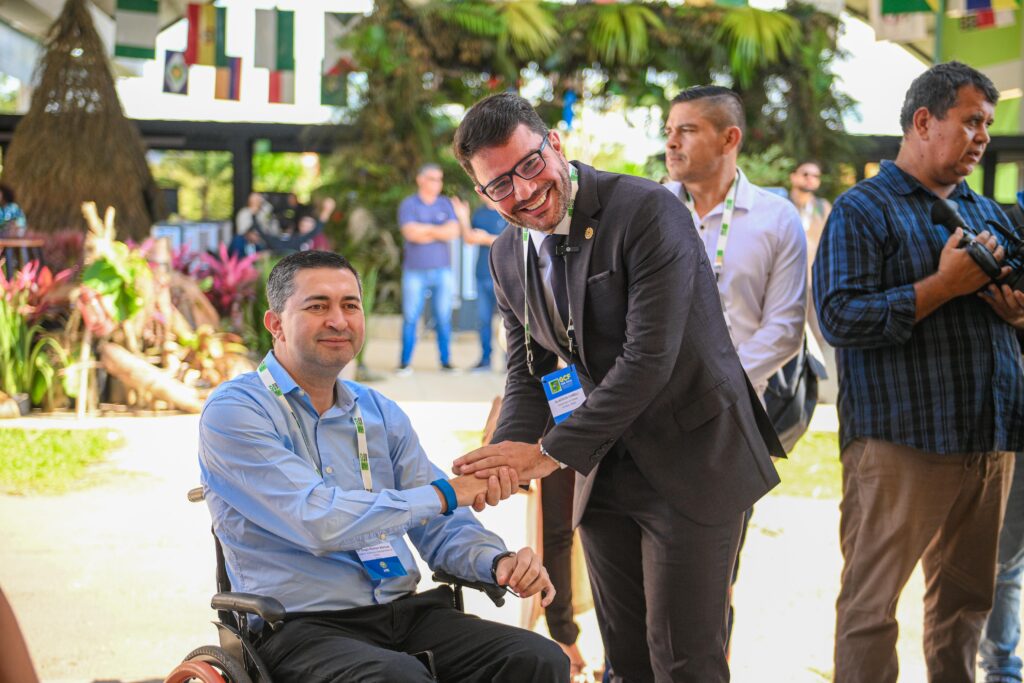
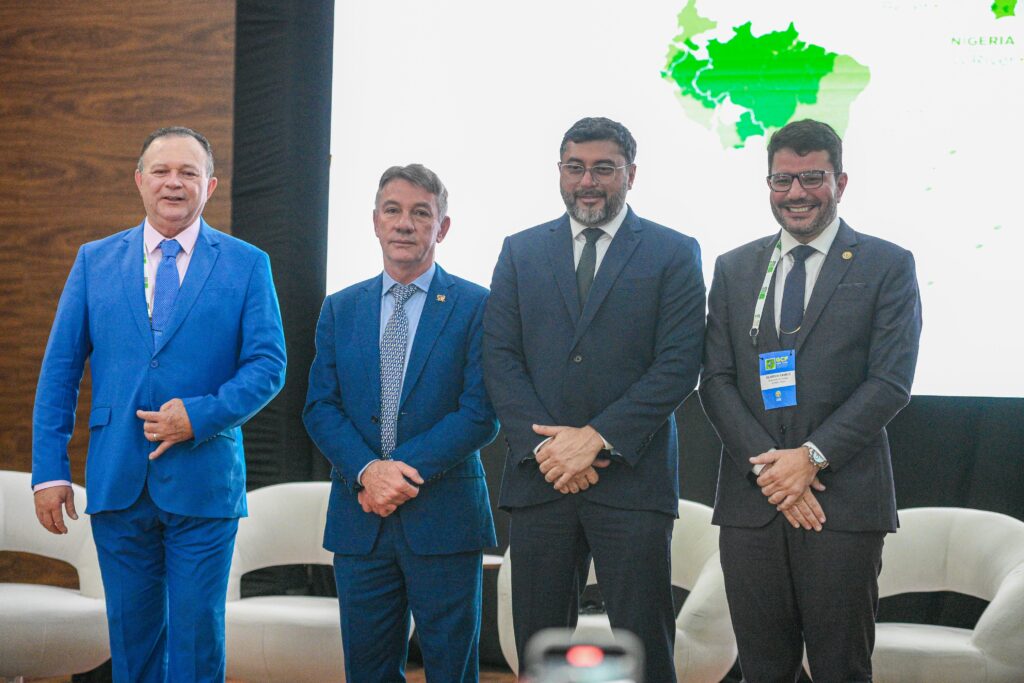
Subnational-National Engagement
Minister Silva went further, recognizing that
“we are already experiencing the effects of climate change. We need to lead by example, because Brazil will host COP30… Now is the time to implement measures [to address climate change], which demand investments of US$ 1.3 trillion. We need to double renewable energy sources, decarbonization, among others. We need to reduce carbon emissions. Therefore, being here today in Acre, at the Federal University of Acre, brings back many memories, because I graduated here. And these memories lead me to some points, such as the necessary care we need to take towards the forests. The bioeconomy is a fact and we are putting it into practice. Guided by the Amazon Fund and Climate Fund, we establish genuine dialogue, ranging from management and other initiatives. And these investments announced today, in partnership with BNDES, through the Amazon Fund and Climate Fund, will continue to help us reduce, for example, deforestation in the Amazon rainforest by 43% as occurred in 2024. And all these mechanisms, added to REDD+ and the TFFF, when well utilized, contribute to reducing deforestation and also foster the local and regional economy.”
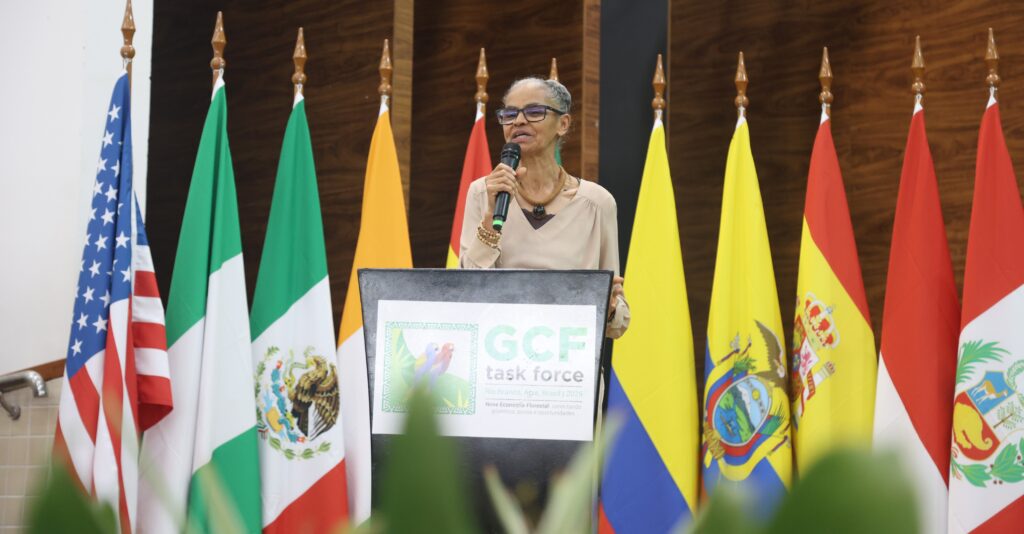
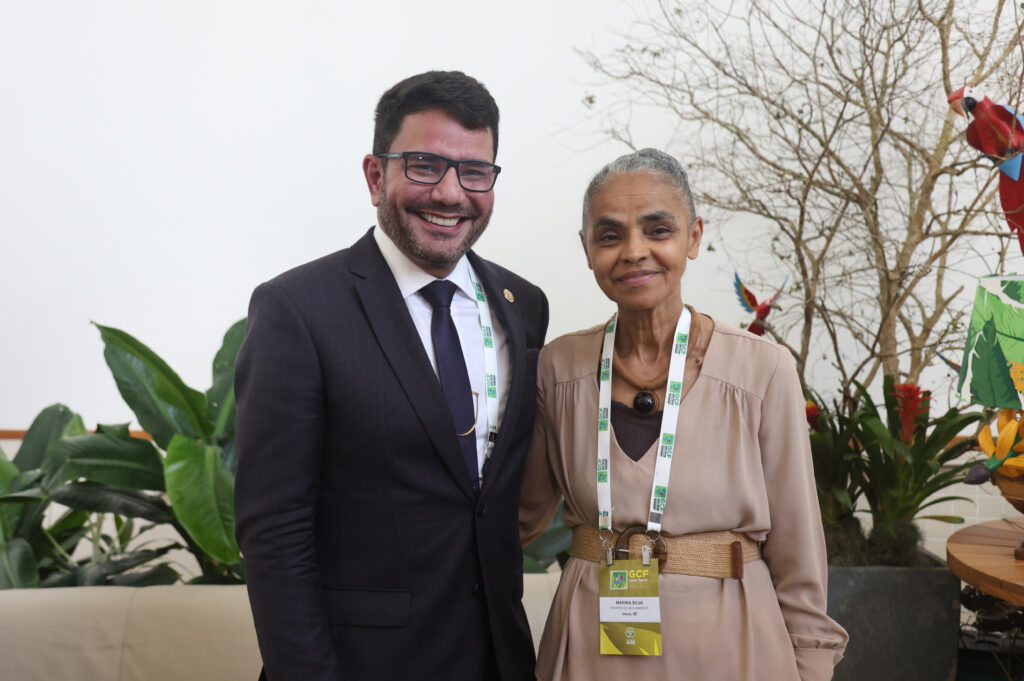
Highlighting the importance of subnational-national engagement, Tereza Campello of the BNDES stated,
“Acre is one of the states I’ve visited most frequently lately. The environmental agenda has become an increasingly central part of the [bank]’s daily operations. The New Forest Economy is already up and running at the bank. It’s not a promise, it’s not the future—it’s happening today.”
She went on to announce two important initiatives for that will support Acre through the investment of R$ 67 million, in partnership with the Ministry of Environment and Climate Change, that will be channeled through the Amazon Fund and Climate Fund. This investment will support an innovative Amazonian wood drying project (called the Madeflona project) and a family farming initiative to benefit indigenous populations, rural families, settled communities, extractivists, riverside dwellers, students, and the school community. These investments build on the Amazon Fund’s already allocated R$ 236 million to Acre.
Subnational Leadership
The importance of expanding these types of initiatives cannot be overstated. William Boyd, Project Lead of the GCFTF noted:
“The world continues to face a climate emergency, with recent deforestation numbers showing a very bleak picture. This convening of the GCF Task Force has been extremely important because it helps build vision and implementation of subnational approaches to tackling this emergency based on real expertise and solutions on the ground. What this means is that the international community, national governments, and partners must come together with our Governors and their teams to construct the New Forest Economy. We’re especially excited to welcome two new member states, the Ecuadorian province of Orellana, and the Department of Beni, from Bolivia.”
The subnational governments of Amazonas, Guainia, Guaviare, Putumayo, and Vaupés in Colombia, as well as Michoacán, Mexico, and Tumbes, Peru, were voted in as new GCFTF observer members, during the Acre meeting.

“Subnational governments need to feel supported in their actions. And, in this sense, we have sought to support them in all possible ways, especially in the development of actions that result in effective measures to combat the drivers of deforestation and of global warming.” – Colleen Scanlan Lyons, Project Director of the GCF Task Force
These actions were front and center during a sessions of technical working sessions and class-room-style field visits held earlier in the week.
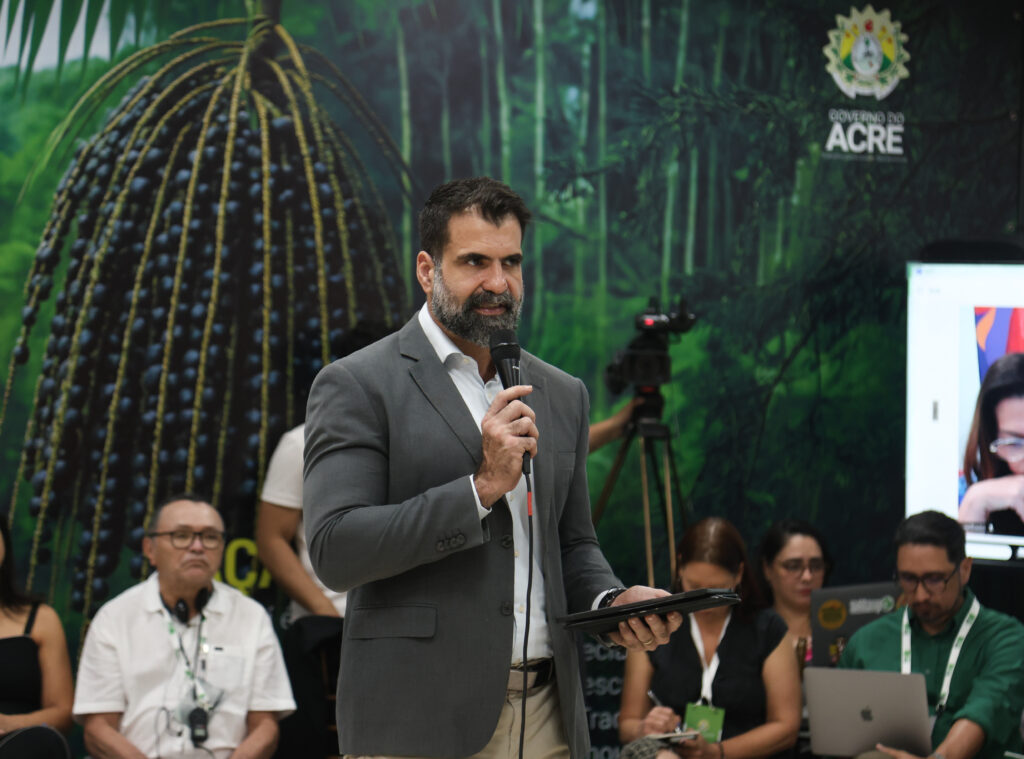
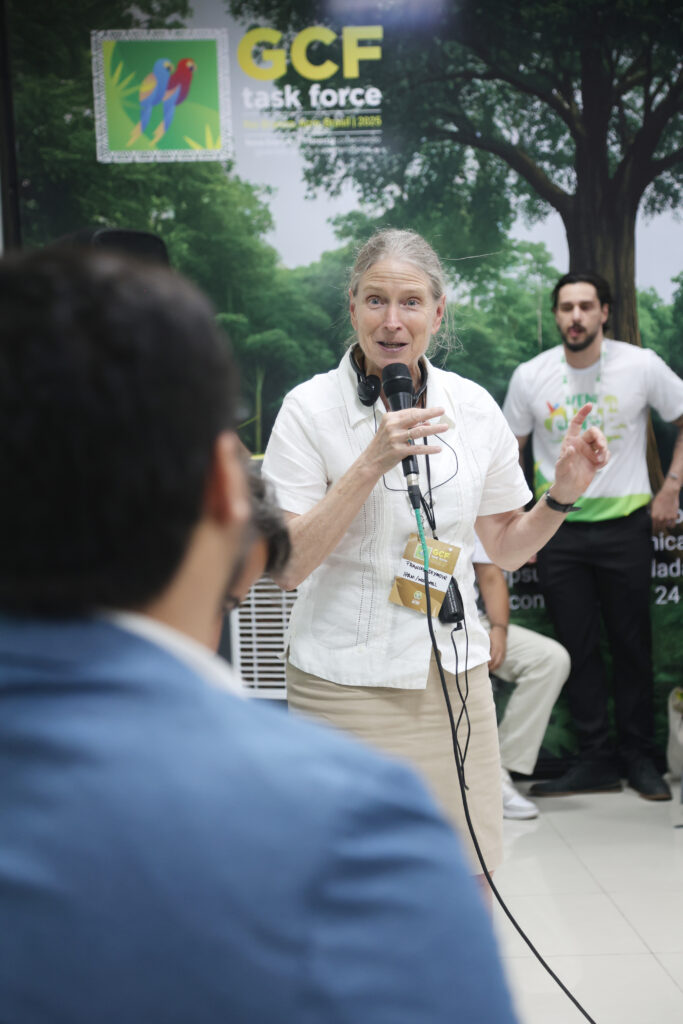
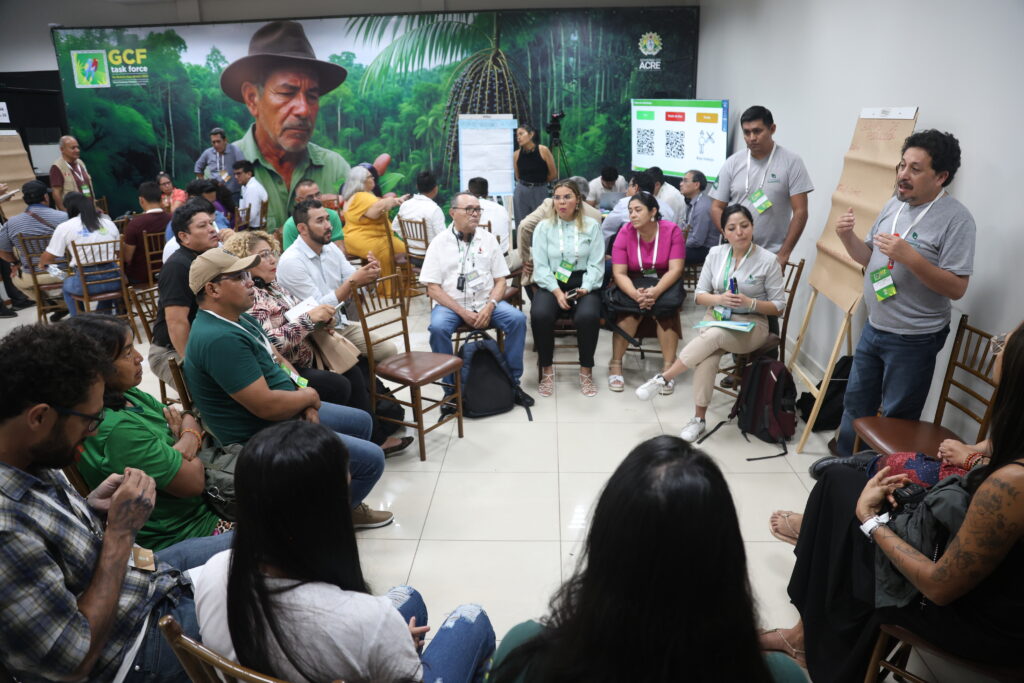
A key element of the meeting was the close partnership with Indigenous Peoples and local community leaders. Francisca Arara, State Secretary of Indigenous Peoples of Acre, noted that
“ensuring collaborative partnerships with indigenous peoples is essential for strengthening the forest-based economy, environmental management, and measures to fulfill subnational climate and forest commitments.”
As per GCFTF tradition, the week kicked off with a session of the GCF Task Force Global Committee of Indigenous Peoples and Local Communities to advance this collaborative approach.
Key Announcements
Over the five days of the annual meeting, the world’s largest subnational governmental network focused on forests and climate defined the priority topics that would be addressed by member states leading into COP30. The continuous structuring of the New Forest Economy was at the center of the discussions. Measures such as combating the increasing damages from forest fires, partnering with indigenous peoples, poverty reduction, concerns about the spread of organized crime in forest areas, and the necessary maintenance of standing forests were present in both closed meetings and public working sessions.
Among the initiatives advanced during the meeting were a Carta de Acre, which advocates for the integration of Subnational, jurisdiction-scale programs with national strategies like the Tropical Forest Forever Facility; the implementation of a Global Bioeconomy Partnership Network, which is expected to present pioneering public-private partnerships across the Amazon and establish support during COP30; and a partnership between the GCFTF and the European Union program Amazonia+ to foster the increased transnational technical exchanges and capacity building around best practices and needs of subnational jurisdictions in building the new forest economy and combating deforestation.
Letter from Acre
Within a global agenda for Amazon protection, Acre’s Governor, Gladson Cameli, read the Letter from Acre. The text argues that the success of the Tropical Forest Forever Facility (TFFF) depends on subnational actions and the recognition of Indigenous Peoples and Local Communities (IPLCs) as forest stewards. The TFFF will be launched at COP30 in Belém to establish long-term performance-based financing for protecting intact tropical forests, accelerating the restoration of degraded lands, and building durable new forest economies.
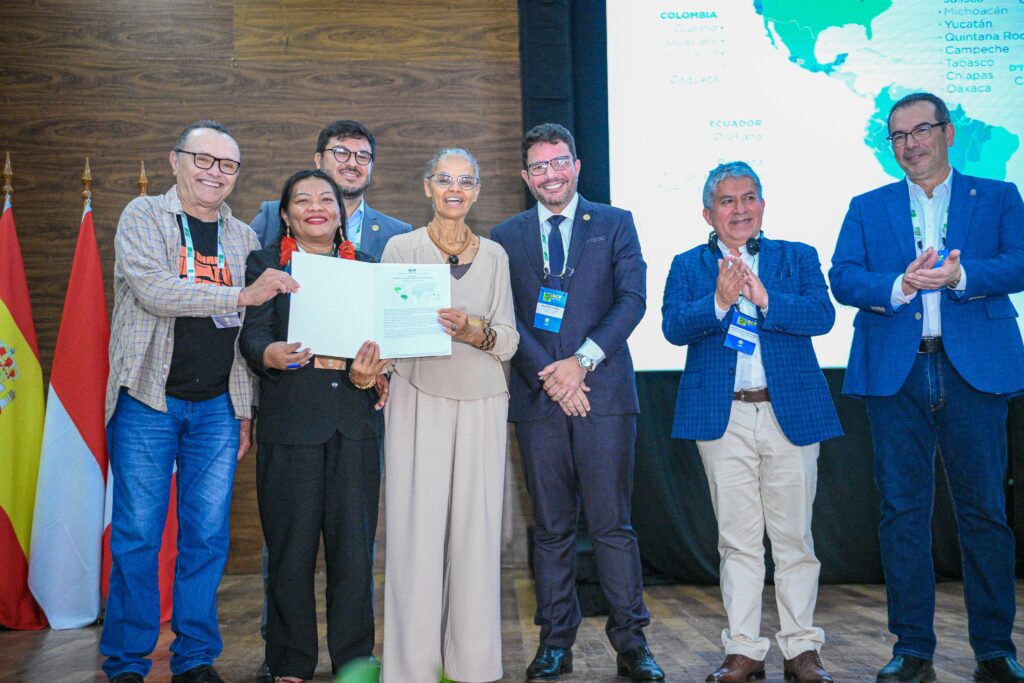
The document also advocates for the integration of mechanisms such as Jurisdictional Subnational REDD+ programs into national REDD+ strategies as a priority topic for COP30. This includes in-depth debates on regulation, increasing financial resources, and understanding the role of oversight bodies and the judiciary to promote a shift in land-use methods and, consequently, reduce greenhouse gas emissions.
GCFTF and Bioeconomy
In another global initiative, the GCFTF championed the creation of a Network for Sociobioeconomy Innovation, a network of science, technology, and innovation hubs for the Amazon through partnerships between subnational governments and private sectors, national governments, civil society, and technical and financial actors.
Regarding partnerships, each sector assumes a role within its competencies. Thus, national governments would establish public policies and lasting structures to reduce investment risk in the bioeconomy; the private sector would provide the necessary investments and technical expertise to scale the new forest economy; banks, multilateral institutions, and foundations would offer support through programs and initiatives to integrate the regions; and civil society and research and educational institutions would focus on the inclusion and engagement of Indigenous Peoples and Local Communities.
In the coming months, the GCFTF will identify proof-of-concept pilot projects and pioneering bioeconomy hubs in the Amazon, aiming to announce support for these centers at COP30.
Amazonia+ & GCFTF Technical Exchange Mechanism
During the annual meeting, the GCFTF announced a partnership initiative with Amazonia+ Program, funded by the European Union and implemented by AICS, FIAP, and Expertise France. This Amazonia+ program aims to strengthen CO2 emission mitigation actions in the eight countries of the Amazon basin: Bolivia, Brazil, Colombia, Ecuador, Guyana, Peru, Suriname, and Venezuela.
The technical exchange mechanism will involve the exchange of innovative experiences, knowledge, and practices among Amazonian states, departments, and provinces through the GCFTF platform. Special attention will be given to local capacity building, participatory governance, and nature-based solutions. The partnership also focuses on combating deforestation, particularly in the prevention, monitoring, control, and fighting of forest fires. To achieve this, it works to develop and implement environmental and forest governance policies and mechanisms, with the active participation of local communities and indigenous peoples of the Amazon basin.
Awards and Every Day Hero
The GCFTF Secretariat also awarded key recognitions to several outstanding delegates and partners of the GCFTF network. Acre’s Environment Secretary, Leonardo das Neves Carvahlo, received the Everyday Hero Award for his outstanding leadership, persistence, collaborative approach, and expertise on advancing Acre’s jurisdictional forest protection actions. Professor Gusti Hardiansyah of West Kalimantan received the Distinguished Leadership Award for his many years of dedicated work within West Kalimantan, within Indonesia, and within the larger GCFTF network.
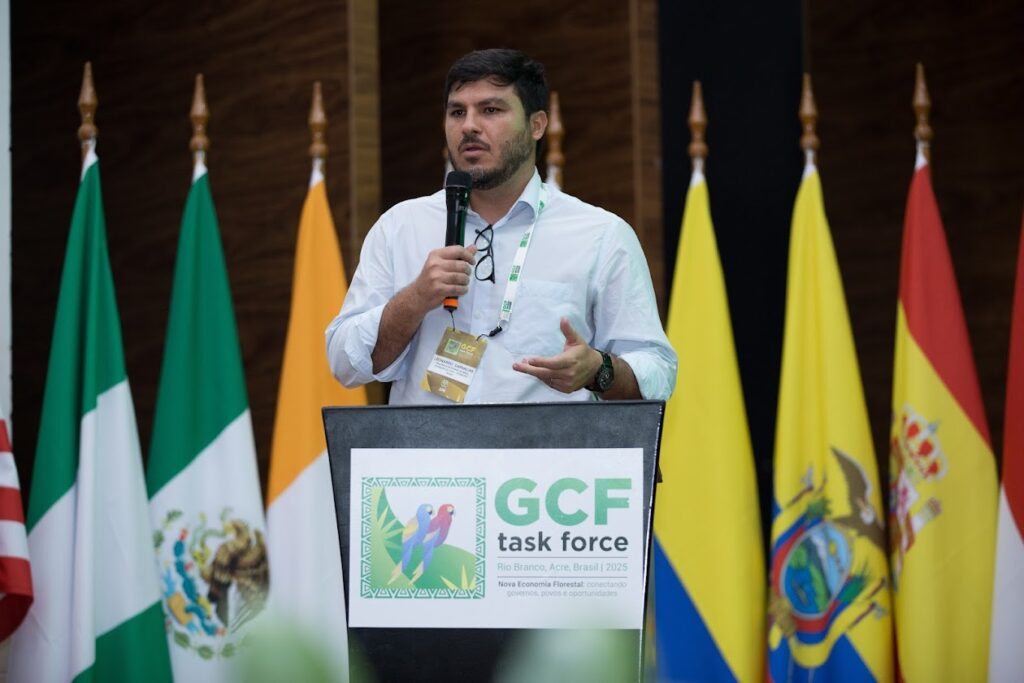
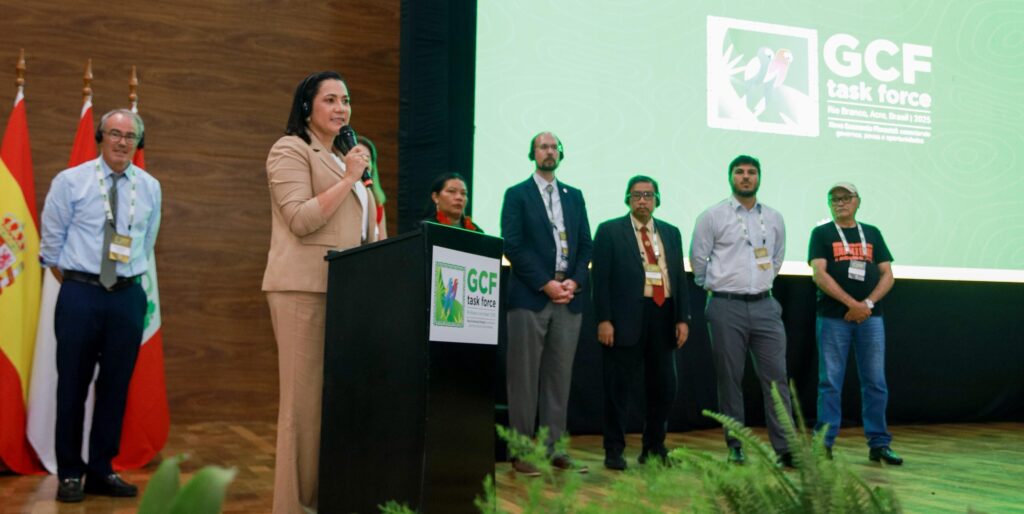
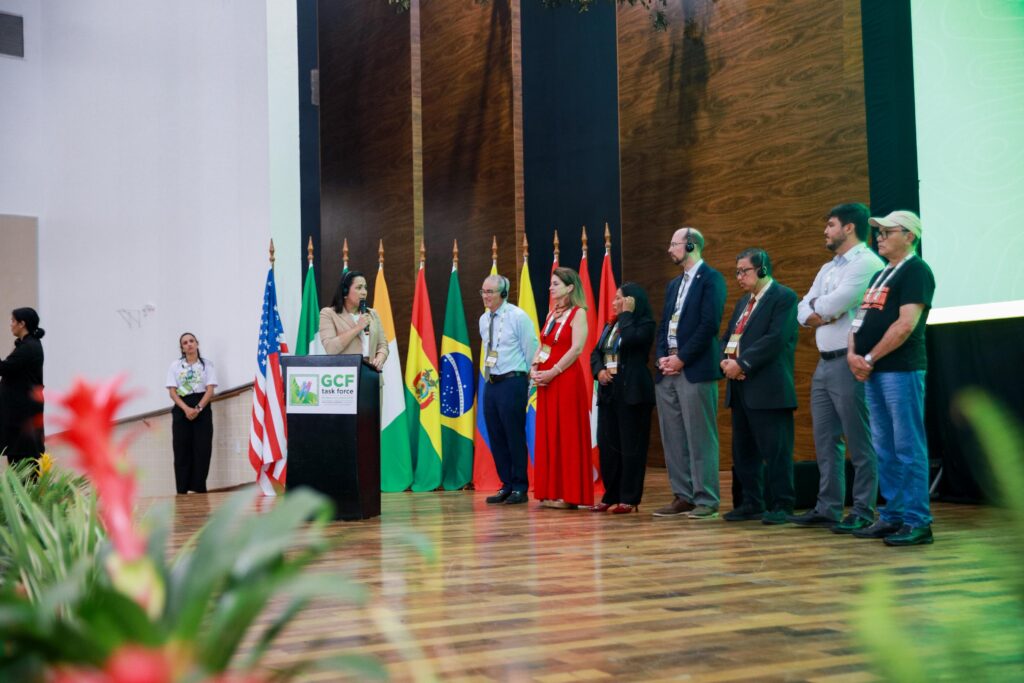
Julio Barboso de Aquino, President of the National Council of Rubber Tappers, was recognized for his many years of leading the movement he started with Chico Mendes in defense of the Amazon and for social equality. Julio’s work includes bringing substantial leadership from local extractivist communities in Brazil into the GCF Task Force Global Committee of Indigenous Peoples and Local Communities. Finally, the GCFTF honored a key partner, Victor Salviati, who led years of partnership engagement with GCFTF states and communities within Brazil and more broadly through his work at the Foundation for a Sustainable Amazon (FAS).
Next Steps
The GCFTF network will continue to work hard on developing this New Forest Economy, in the leadup to COP30 and beyond. Next year’s Annual Meeting will take place in Caquetá, Colombia and the meeting in 2027 will be in West Papua, Indonesia.

About the GCF Task Force
The GCF Task Force brings together 45 member states and provinces and aims to foster public-private partnerships and sustainable investments in the bioeconomy. The network was created in 2008 by then-California Governor Arnold Schwarzenegger to address global climate change and has since received support from USAID, the Climate and Land Use Alliance, the Norwegian government (NICFI and Norad), and other partners.
Press Contacts
Guilherme Manechini
(11) 9.6984-0404
guilherme@kyvo.com.br
Maurício Capela
(11) 9.9215-4207
capela@kyvo.com.br

